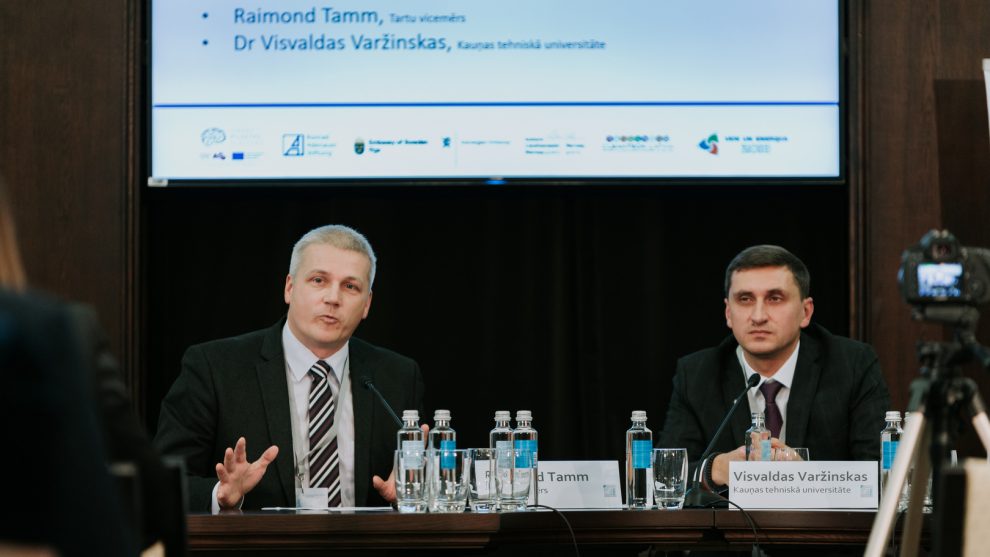Kaunas is among the leaders in the formation of European Cities Policy

Paskelbta: 2018-12-19 (Wednesday)
How will smart cities of Europe develop and to which direction it will move after 2020? In the past three years, Kaunas has been putting a lot of efforts in improving the infrastructure in parallel of trying to manage strategic issues of long-term development. Nevertheless, Kaunas is the only Lithuanian city that is a participant of “Urban Agenda for EU”, a project which seeks to improve the quality of life in urban areas.
Visvaldas Varžinskas, who is a member of Kaunas City Council said: “The progress made by the city has been positively valued not only by the citizens of Kaunas, but in wider scope as well. Due to obvious changes, such as the development in infrastructure, city management efficiency, a growing investment environment and increasing confidence by investors, reflected in record investment in urban history, Kaunas is considered to be an absolute leader in a region. It is a great recognition that the city works efficiently towards circular economy. Therefore, Kaunas was given a well-deserved opportunity to make a significant contribution on shaping the urban policies throughout the European Union.
V. Varžinskas together with colleagues from all around the Europe works on the so-called Amsterdam pact. This document, that was approved in 2016 and it covers 13 areas, in which the decisions, that establishes the guidelines for the Old Continent cities’ future, has to be made. One of them is the circular economy.
Each area is represented by 6 experts, who represents different European cities. It is the circular economy area that V. Varžinskas works since the beginning of his term. His colleagues are from Oslo (Norway), Hague (Netherlands), Prato (Italy), Porto (Portugal) and Flemish region (Belgium).
The main objective is to create a package of recommendations and an action plan for circulated economy for the EU. European Commission is ready to transfer it to the EU law and policy, so it would become a real work practise, not just the talking. Cities and their self-governance is a very important part of the European Union’s policy as 80% of citizens who produce 85% of Gross Domestic Product (GDP) live in the urban areas.
“Participation in shaping the urban policies throughout the European Union undoubtedly proves that Kaunas is seen as a solid and competent partner at international level which in return increases the awareness of the city itself throughout Europe” – said Visvaldas Varžinskas.
The member of Kaunas City Council notices that in public space, the most noticeable projects done by Kaunas city are related to today’s city’s development – improved infrastructure, installed measurements to ensure daily quality of life and given attention to the actions for attracting investors.
V. Varžinskas also states that long-term development strategy is getting more attention from higher rank institutions as well: “It can be said that we have an exclusive privilege. While shaping and creating the future of EU cities’ policy, at the same time we are planning future EU funds and investments after 2020. We are accumulating the knowledge which will give us an advantage in the future while claiming for support from the Structural Funds for the implementation of important urban projects. Even though, long-term strategy formation is not as noticeable to society as infrastructure change, it is equally important and will bring its results in the future when creating better living conditions.
Recently, Riga hosted the conference “Nordic-Baltic states’ energy and climate challenges” which was organized by Nordic Council of Ministers. In the conference, V. Varžinskas presented to the Baltic States politicians and representatives of municipalities the main priorities and planned solutions of the EU cities policy, which are intended to reduce environmental impact, save resources and create a favourable investment environment for innovative and environmentally-friendly industries.






